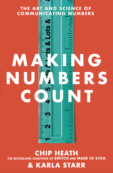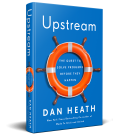If you have any patience at all for academic articles, you’ll find this one captivating. Three researchers find that when we are confident about our impulse-control abilities, it backfires on us, because we allow ourselves to get into tempting situations — and then we end up caving. Whereas people who are more skeptical about their self-control will tend to avoid those temptations altogether. (By the way, don’t miss experiment 3 — a comical case study in temptation involving smokers and the Jarmusch film Coffee and Cigarettes.)
Here’s a teaser:
Consider these common dilemmas. Can recovering alcoholics ever return to the people and places that once nurtured their addiction without fear of relapse? Can dieters visit their favorite buffet without bingeing? Can people committed to their marriage have drinks with past flings without fear of being unfaithful? The answers to questions like these, it would seem, hinge largely on one’s belief about the human capacity for impulse control.
… [In this article, we] argue that people generally, unlike Odysseus, exhibit a restraint bias: a tendency to overestimate one’s capacity for impulse control. The restraint bias matters because it leads people to overexpose themselves to temptation, thereby promoting impulsive behavior.



